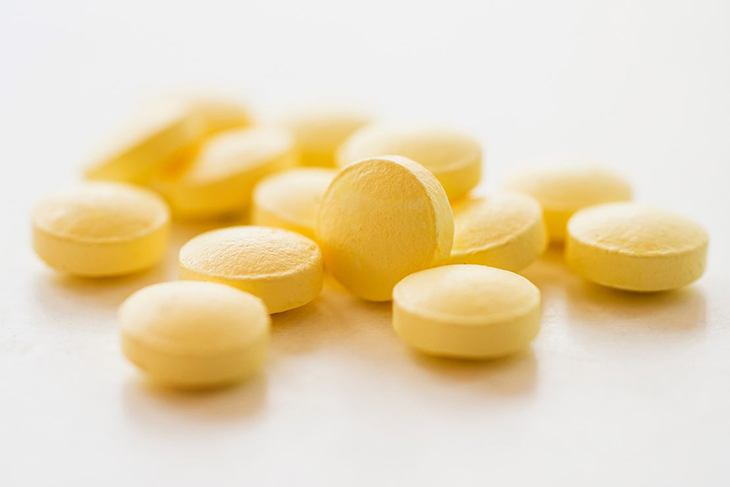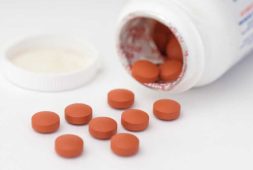
Most people understand that folic acid supplementation is usually for pregnant women to help lessen the chances of the baby developing issues during pregnancy. But according to a large observational study, which was published in the September 28 copy of JAMA Psychiatry, taking a daily folic acid supplement may help decrease the risk of suicide. Researchers share that if their findings are correct and affirmed, then folic acid could be a valuable tool when it comes to suicide prevention.
Lead study author and professor of biostatistics and medicine at the University of Chicago, Robert Gibbons, PhD, said, “There are no real side effects, it doesn’t cost a lot money, and you can get it without a prescription. This could potentially save tens of thousands of lives.”
According to the American Foundation for Suicide Prevention, suicide is the ‘12th leading cause of death in the United States.’ Back in 2020, 45,979 American lives were lost to suicide, while there was an additional 1.2 million suicide attempts.
Could Folic Acid Be the Answer for Suicide Prevention?
Folic acid belongs to the B vitamins, and it works to help the body create healthy new cells. While it’s important to everyone to have folic acid, as mentioned earlier, it’s especially important for women that may get pregnant since the recommended amount of the vitamin before and during pregnancy is known to ‘prevent major birth defects in the baby’s brain or spine,’ as shared by MedlinePlus.
At first glance, the vitamin may seem like it has very little connection to suicide prevention. Normally, these include ‘screenings, access to ongoing crisis support, therapy, and medications such as antidepressants.’ So you may be wondering why the authors decided to look at the relationship between suicide attempts and folic acids at all?
According to the researchers, the identification of folic acid as a suicide attempt reducer was discovered during the application of new statistical screening methodology called iDEAS (High Dimensional Empirical Bayes Screening). As explained by Dr. Gibbons, this is a database that includes health and prescription records from at least 160 million people in the United States over a 10-year period.
Some Medications and Conditions Can Lower Folate Levels
This former research looked at the links between suicide attempts and more than 900 different drugs, which included supplements. What they found is that 10 drugs were associated with an increased suicide risk, while 44 drugs decreased the risk. Coincidentally, folic acid happened to be one of the 5 drugs that was ‘most strongly associated with fewer suicide attempts.’
Additional analysis showed that more than half the people who had a folic acid prescription, despite the fact that it’s available over the counter and is usually bought that way, also had a pain diagnosis, while 31 percent who were prescribed a folic acid supplement had also filled a methotrexate prescription, which is a medication usually prescribed to those who have rheumatoid arthritis (RA).
The medication methotrexate can actually deplete folate, which is often why folic supplements are prescribed to those people who are made to take this particular drug. Researchers believe that it could possibly be the lowered levels of folate caused by the intake of methotrexate ‘may increase suicide risk, and that folic acid supplementation then decreased that risk.’
Folic Acid Supplements Associated with Reduced Suicide Attempt Risk In All Populations
In order to better test this association, the investigators used databases of inpatient, outpatient, and prescription claims of over 100 insurers in order to identify around 866,000 adults who filled a folic acid prescription between the years 2012 and 2017. Moreover, the data also allowed the researchers to see which months these prescriptions were filled in order to cross-reference them with suicide attempts.
Researchers were also able to identify which individuals were diagnosed with particular conditions like depression and anxiety, who may be at a higher risk of suicide, as well as those taking such medications as methotrexate which reduces folate.
For the group that was given folic acid over the five-year period, there were 261 suicidal events (either suicide attempts or intentional self-harm), specifically during times when folic acid was being consumed. In addition, there were 895 events recorded when folic acid was not being consumed by the same individuals.
Once the researchers also adjusted for age, sex, mental health diagnosis, and other central nervous system drugs that could possible affect the results, they found a 44 percent lower rate of suicidal attempts in those taking folic acid, mostly at a dosage of 1 milligram (mg) a day.
Dr. Gibbons explains, “In all of our sensitivity analyses, we found similar reductions in suicide attempt rates, suggesting that the association is present in all of the populations that we have studied.”
In addition, the longer people were taking the supplement, the lower the suicide risk. For each month that they took folic acid, there was an association of an additional 5 percent decrease in the risk of attempted suicide during the follow up time of two-years.
Gibbons also went on to explain that the author’s theory of the ‘association between folic acid and suicide attempt was produced by folate-reducing drugs like methotrexate was not confirmed in the study.’
They wonder, could it be that people that take any type of prescription vitamin supplements to improve their health may also be less likely to attempt suicide? In order to further confirm their findings, as well as to ensure that this was not the actual reason for the reduced risk, the same examination was done once more in those who took another type of vitamin supplement, vitamin B12 specifically, which had no known relationship to suicidality. During that “control” trial, they found that there was no association between vitamin B12 and suicidal events.
Former Research Established a Link Between Folic Acid Levels, Depression and Suicide Attempts
Notably, This isn’t the first study that found a connection between folate levels, folic acid supplementation, depression, and suicidality. Back in December 2017, a meta-analysis of 43 studies was published in the Journal of Psychiatric Research, where researchers found that ‘people with depression had lower folate levels than those without depression.’
Moreover, a 2021 study published in the December 2021 Frontiers in Psychiatry journal also saw a link between ‘folate levels and fatal and nonfatal suicide attempts in people with depressive disorder.’
Further Research Required to Confirm Link Between Folic Acid and Suicidal Events
Since this study is considered observational, the authors note that it doesn’t yet prove the link between folic acid supplementation and reduced risk of suicide attempts. However, plans to do a large-scale randomized clinical trial of folic acid are already underway. Should the findings be confirmed, Dr. Gibbons shares that folic acid supplementation may actually save thousands of lives.
The authors also plan to use the same methodology to identify other types of associations. Dr. Gibbons says, “The possibility of discovering drugs or supplements that could potentially reduce life-threatening conditions such as suicidal behavior is a huge advantage of the iDEAS methodology relative to traditional drug safety screening, and the most rewarding part of this program of research.”
People With Suicidal Thoughts Should Seek Professional Help Immediately
For people with suicidal thoughts, they should seek professional help as soon as possible. The American Foundation for Suicide Prevention has many resources for people suffering from such thoughts of suicide, grieving from a loss, have survived a suicide attempt, or those that are worried about someone else who may be at risk of suicide.
For those in crisis, they can either call 911 or call or text 988 or text TALK to 741741. Don’t hesitate to ask for help. It can help save a life.



